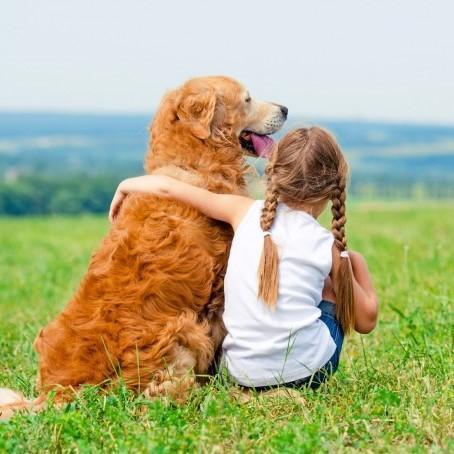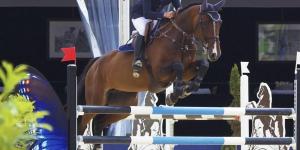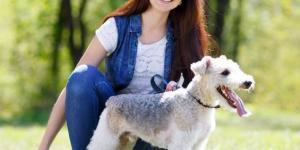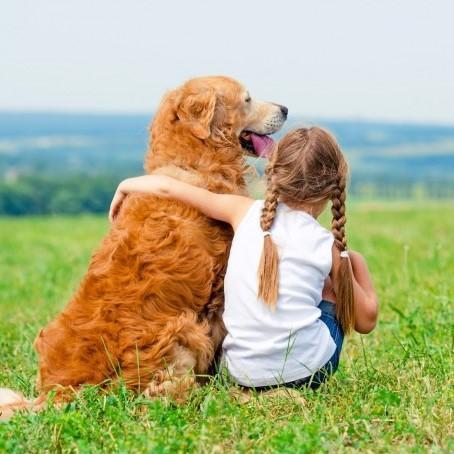The 5 Best Dog Breeds for Autistic Children



See files for Dogs
Dogs are very sensitive and empathetic creatures. On many occasions, dogs end up creating truly amazing and rewarding relationships with their human companions. Dogs and humans have made such a good team over the years that nowadays you can find dogs for practically all types of characters, personalities and tastes.
There are some dog breeds that are born with particular skills and temperament traits, and they can be easily trained to carry out specific tasks. This is the case of therapy dogs that accompany people with special needs such as autistic children. The emotional bond that forms between the child and their pet is so strong that they become almost inseparable, and it largely improves the child's health and mood.
If there is a child with this type of condition in your family, and you are thinking about getting them a new friend, it is important that you know the 5 best dog breeds for autistic children so that you can then make the right decision. Read this AnimalWised article and discover which are these special types of dog breeds.
1. Staffordshire Bull Terrier
The Staffordshire Bull Terrier is a dog that makes an impression because of its muscular and robust frame. However, behind its strong physical appearance lies a very docile dog that is considered one of the best breeds to accompany autistic children.
Staffordshire Bull Terriers are loyal, trustworthy and have a phenomenal character. They love to be together with their family. You'll see them accompany the child to wherever they want to go, even when it's time to go to bed, as they are really affectionate and obedient. If trained properly, this dog will provide the best care for the child.
Their inclusion on this list is somewhat controversial. Staffordshire Bull Terriers are very muscular dogs with a strong bite and, unfortunately, a bad reputation with some. However, they have suffered terrible abuse at the hands of many owners who have historically engaged them in the vile practice of dog fighting. This does not mean that Staffies are inherently dangerous dogs.
According to the ‘American Temperament Test Society’[1], the Staffordshire Bull Terrier has one of the highest scores for any dog breed with 90.9% at the time of publication. While this test is not perfect, it does go some way to show the importance of treating the dog as an individual. This is the stance of the American Society for the Prevention of Cruelty to Animals which states that ‘genetics do not exist in a vacuum’[2]. Many factors influence a dog's behavior, but this is true of all breeds. More important than breed is adequate socialization, humane treatment and early positive experiences in terms of a dog's aggression. By enforcing breed specific legislation, as pointed out by the ASPCA, you only create the illusion of public safety. By treating dogs on an individual basis you will be better able to stop attacks, prevent purposeful mistreatment and educate owners and the public about how to treat all animals safely and humanely.
While it is true that some individual dogs have been known to attack children, this is true of any breed. It is equally true that many autistic children benefit from the love, care and companionship which Staffies provide.
If you want to know more about Staffordshire Bull Terriers and other dogs which are categorized under the Pit Bull banner, you can check out our article on the different Pit Bull types and breeds.

2. Newfoundland
Again, don't be overwhelmed by its size. Newfoundland dogs are as big as their heart. If you go for a dog of this breed, you'll have a new teddy bear at home which will constantly hug your child. One good thing about this dog is that, with it being so large, it doesn't have many energetic requirements. This is perfect for a child who has autism, as it will encourage them to keep calm. It will also work for those children who are less active and prefer drawing or playing in the same space.
The Newfoundland is a gentle giant; it has a relaxed temperament and is very intelligent. Nana, the Darling children's nanny dog in Peter Pan, is a Newfoundland. What more proof do you need that they are great with children?

3. Great Pyrenees
The Great Pyrenees is a very intelligent breed that has always been used as a working dog. This means that these dogs are adaptable in terms of education and training. This dog, then, will easily learn to look after and protect an autistic child, allowing their parents to relax a little bit and share the responsibility, so that they can do other household tasks at the same time.
These dogs are mentally balanced, quiet and calm; Great Pyrenees aren't barkers. This is a virtue in these cases, as they won't disturb the child. They are good with new experiences and empathize much with their owner.

4. Golden Retriever
The Golden Retriever is the quintessential family dog. It is the first breed that most parents think of when getting a dog for their children. This is because they have all the right characteristics to be a fantastic companion. It is also one of the special breeds that can become an assistance dog owing to its docile, safe and adaptable personality.
They are very affectionate with children and are great at reading emotions. For example, if one day the child is more active and happier, the dog will encourage them to play and have lots of fun together. If, on the other hand, the child feels a bit subdued, the Golden Retriever will stay by their side and maintain a very quiet position, almost saying "I'm here when you need me" while at the same time transmitting all their love to them.
Golden Retrievers are also among the 5 best dog breeds for beginners.

5. Labrador Retriever
Dogs, especially the labrador breed, often establish bonds of love and trust with their owners through eye contact. They want to tell you many things with their sweet and attentive gaze, whilst at the same time they make you feel wanted and safe.
Labrador Retrievers are known as companion, rescue and assistance dogs. Among the many benefits they can bring to the life of an autistic child you can find the way they build the child's confidence, help them to reduce anxiety attacks, stimulate their imagination and desire to communicate, encourage their self-control and - as they are very sociable and loving - they are great at integrating children to their environment. A Labrador Retriever could encourage the reactivation of autistic children's emotional connectors.

If you want to read similar articles to The 5 Best Dog Breeds for Autistic Children, we recommend you visit our Ideal for category.







 INSANE!!!! TWO CHILDREN WERE KILLED BY PIT BULLS THIS WEEK ALONE!!!
INSANE!!!! TWO CHILDREN WERE KILLED BY PIT BULLS THIS WEEK ALONE!!!





